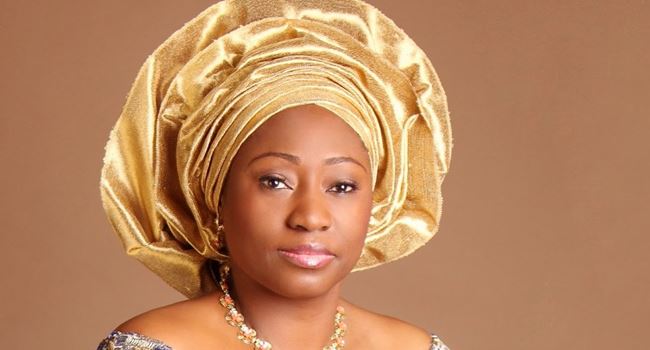Metro
Fayemi laments women being intimidated in politics

The Wife of Ekiti State Governor, Erelu Bisi Fayemi has lamented that Nigerian women are intimidated in politics against the 1999 constitution which guarantees their right.
Speaking Wednesday on the issues affecting women’s access to political spaces and representation in the country, at the 5th distinguished guest lecture at the University of Medical Science, Ondo in Ondo State, Fayemi, said that the percentage of women elected to the National Assembly was “approximately 5 per cent which is very low.
“The level of representation of women in elective positions has gone down during the three general elections, 2011, 2015 and 2019.
“ln Nigeria, women occupy about 30 per cent of all the posts in the public sector and 17 per cent in senior management and decision- making positions”.
She positioned that “in the absence of a level playing field, female candidates will always come up short and the electoral tally in Nigeria will always be skewed in favour of men.”
She equally identified increased incidences of violence and high level of intimidation against women a threat to their political participation in the country.
According to her, there has been evidence that revealed, that “violence or the perception and or real fear of violence are a major deterrent for women to engage effectively in politics.
“The latest numbers of these incidents reportedly take place during political campaigns or rallies while others occur at political party events.
According to her: “This further underscores the real need to engage political parties in promoting peaceful elections in Nigeria.
Fayemi, however, said that “strategies such as the use of affirmative action and quotas even if only on a short-term basis could make all the difference for Nigerian women.
On issues that have deterred women’s access to political leadership and decision-making, the wife of the governor classified five broad categories.
According to her, this include; cultural and attitudinal barriers, inaccessible political machinery, the financial investment required, violence and the role of the media. Fayemi, therefore, submitted that:
“There can be no progress without women’s full and equal participation in leadership. Nigeria needs to stop clapping with one hand.”
Speaking further, Fayemi also lamented that Nigerian women still struggle for full recognition of their rights despite the fact that the 1999 constitution prohibits discrimination on the ground of gender and the rights of women to participate in elections as voters and candidates.
“Women constitute 49 per cent of the country’s population, yet, their key role is inadequately acknowledged in political and economic arenas.
Read also: Court remands Father for allegedly strangling 11-month-old baby to death
Referring to the National Bureau of Statistics, the first lady said 65 per cent of Nigerian women live below the poverty line and women continue to be disproportionately affected by poverty in both rural and urban settings.
“Researchers have shown that in the organisation of various traditional governments in the pre-colonial era, women held powerful positions and thus had a voice in the decision-making processes.
“Since 1954 in the South and 1979 in the North following the return to civilian politics, Nigerian women have been constitutionally empowered to vote.
Millions of women and girls still suffer from the feminisation of poverty, lack of access to basic resources, diseases, violent conflict and the complex use of culture, religion and tradition to render women voiceless.”
The Vice-Chancellor of the University, Prof. Friday Okonofua expressed worries over the current rate of under-representation of women in all spheres of our national life.
He pointed out that “if women are continually wished away in important offices in the country, it will amount to the country clapping with only one of its two hands, a situation that will not augur well for us in future.”
Join the conversation
Support Ripples Nigeria, hold up solutions journalism
Balanced, fearless journalism driven by data comes at huge financial costs.
As a media platform, we hold leadership accountable and will not trade the right to press freedom and free speech for a piece of cake.
If you like what we do, and are ready to uphold solutions journalism, kindly donate to the Ripples Nigeria cause.
Your support would help to ensure that citizens and institutions continue to have free access to credible and reliable information for societal development.






















